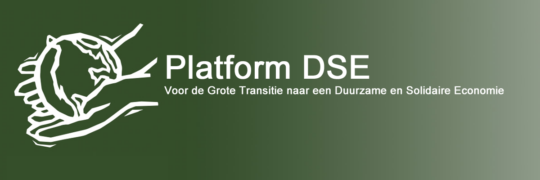Op de 16 sessie van de UN Commission of Sustainable Development (mei 2008) werd door Leida Rijnhout (VODO/ ANPED) en Maria Arce (Practical Action, UK) onderstaande kritische stellingname gepresenteerd mede geïnspireerd door de Verklaring van Tilburg.
Almost two weeks we discussed on challenges and obstacles in this review year on agriculture, drought, rural development, desertification, interlinkages and cross cutting issues. We tried to analyse why things are not going better, why we don’t see enough improvement in our actions to combat poverty and to save the planet? This lack of answers maybe related to the fact that we are not asking ourselves the most fundamental questions. Although we are afraid to discuss the current framework where we are acting in, we will have to do so, because the actual economic system delivers us more problems than solutions.
It is difficult to answer questions that challenge the core of our lifestyle. Maybe that’s the reason why we limit ourselves to the smaller ones and place all our energy in “end of pipe” solutions, instead of focussing on the root causes of these problems.
The necessary change of unsustainable production and consumption, is often mentioned but far more often forgotten in terms of actions in these conferences. The message is clear, we have to change our whole economic system. There is an urgent need for a radical turn of direction in which the economy is developing. We are challenged to crack the coconuts, although cracking the peanuts is easier. It is namely “peanuts” to promote sustainable production and consumption, more difficult is to change the unsustainable production and consumption patterns (as agreed in the JPOI).
In order to change the economic system, we need to “crack” the dogma of eternal economic growth, which would lead us, according to the mainstream thinking, to welfare and environmental conservation. There are limits to growth, which in global terms, we already passed. The world economy causes an overshoot of 25%; we are practically eating our planet.
Our fixation with economic growth is one of the driving forces for unsustainable development and social inequity. Governments seem to have only one purpose in mind: improving their GDPs, while in reality their main goal should be to ensure the well being of their population. Even measuring development by only focusing on GDP as an indicator is limited. GDP is a ‘speedometer’ of the economy, and merely indicates how fast we are earning money, irrespective of the question whether this growth is generating useful products and services or whether it is causing damages to people, their livelihoods and the environment. What we rather need are height indicators (altimeters) that show how far away we are from a sustainable economy based on solidarity. For instance, if we would use the Ecological Footprint as a measuring rod, we would see that for a sustainable economy, our countries’ use of materials, space and fossil energy would have to be reduced by roughly two thirds. Furthermore, this reduction would have to be realised within a foreseeable timeframe, for example ten years, if we want to avoid that within 30 to 40 years two planets Earth will be necessary to maintain our level of material prosperity.
Similarly other indicators include the Sustainable National Income (SNI) index, the Index for Sustainable Economic Welfare (ISEW) and others that indicate the welfare and happiness of people. Several indicators may exist simultaneously and complement each other in order to measure the distance to real sustainability and solidarity.
Welfare in the South
There is no doubt that in order to guarantee poor peoples’ subsistence, a growth of welfare must take place in the economies of the South which will lead to an inevitable increase in the use of natural resources and energy. A meaningful redistribution of wealth and use of natural resources is urgent. This means that Northern economies will have to transform the use of resources while ensuring the welfare of their citizens. A fair share for every citizen and country has to be recognised and be the main goal in every (inter)national and regional policy.
There is space for growth but only within the framework of real sustainability and equity, more justice, higher quality of life and consequently also increased human happiness in North and South.
Transforming towards a new economic and social framework implies a fundamental change in thinking, policymaking and attitudes that we cannot avoid. This radical change of our economies, in a relative short period of time, should substantially impact the scope and form of production, trading and consumption patterns. We need to start questioning the existing system to make the challenge of “changing the unsustainable production and consumption patterns” more real and accessible. This is a big nut to crack, but worthwhile the energy.
We urge for a radical change of our economies, a change that – in a relatively short period of time – will substantially influence the scope and form of our production and trading systems, wealth generation and consumption patterns. This change is only possible if supported by a broad alliance of social forces. We invite everyone, in particular political parties, trade unions, businesses, academia, civil society and social movements, to be part of this alliance and take responsibility for the transition towards a truly sustainable economy based on solidarity.
Tekst gepresenteerd op de 16e sessie van de UN Commission of Sustainable Development, mei 2008. Gepubliceerd in Outreach Issues A daily publication of Sustainable Development Issues Network (SDIN) and Stakeholder Forum (SF). Gepubliceerd in Outreach Issues – A daily publication of Sustainable Development Issues Network (SDIN) and Stakeholder Forum (SF) van 16 mei 2008

